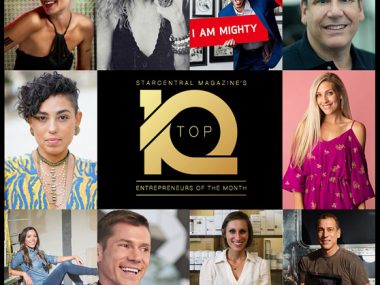Sharon Duke Estroff is the founder and creator of the Challenge Island™ program, She is an award-winning elementary school teacher with two decades of experience in Atlanta public and private schools. She started Challenge Island in her second-grade classroom and began running it as an enrichment business using the current model in 2003. It has been growing by leaps and bounds ever since.
Sharon is a nationally recognized parenting and education expert and a freelance writer for numerous national publications including Scholastic Parent and Child, Parents, Woman’s Day, and Good Housekeeping magazines. She is the author of the popular parenting book, Can I Have a Cell Phone for Hanukkah? (Random House) and co-author of the upcoming Challenge Island book series that turns the Challenge Island curriculum into an exciting and educational story. She is a sought-after speaker who has presented to scores of communities nationwide about the trials and tribulations of raising kids in the digital age.
Sharon received her undergraduate and graduate degrees from Emory University where she graduated Phi Beta Kappa and Summa Cum Laude. She continues to run her local Challenge Island business in Atlanta, Georgia where she lives with her husband and four children.
StarCentral Magazine recently caught up with Sharon to discuss her journey to entrepreneurship and here’s what went down:
Could you please tell our readers a brief background about yourself and how you started your business?
18 years ago, I was at the height of my Dr. Jekyll and Mrs. Hyde phase. By day, I was an award-winning second-grade teacher with a classroom full of happy, thriving students. By night, I was a stressed-out mom with stretched-thin patience who could barely muster the energy to help my own kids with their homework.
I knew it was time for a career change, but as an educator born into a family of educators, I was afraid to stray too far from the schoolyard. There were plenty of things I loved about teaching: the creativity and vibrancy; those smiling second-grade faces; and perhaps most of all, the predictable promise of the back-to-school season – an annual chance for a new beginning. So I took Challenge Island, a STEAM program I created for my students, and turned it into a full-time gig. I began offering Challenge Island as an afterschool enrichment class in nearby schools while tutoring on the side to make ends meet. Before long, I had created a profitable home-based business that I could run around my family’s busy schedule.
With the popularity of STEM, STEAM, and 21st Century Skills in the educational marketplace, I had a hunch that this business model would work. That hunch was right and today, Challenge Island is the #1 STEAM Franchise in the world on Entrepreneur Magazine’s Top Global Franchises list. We have been ranked for 3 years straight on Entrepreneur’s Franchise 500 and Fastest Growing Lists and show no signs of slowing down – even as we face recent challenges greater than I ever could have imagined. Today we have over 100 franchises in 32 states and 5 countries. We partner with 6000 schools and community organizations nationwide and have touched the lives of over 1 million children. Here’s our official website: www.challenge-island.com
What are you currently doing to maintain/grow your business?
When COVID-19 hit, the educational enrichment market – an $8 billion industry that operates hand in hand with the schools – was on the front lines of impact. I saw my franchisees (many of whom are former teachers) begin to panic; I knew that I had to stay strong for them and for the company that I had worked so hard to build. Within 48 hours of the schools closing in March, I launched “Home Island,” Challenge Island’s virtual alter-ego. By April we had taught over 2500 kids via Zoom and by June we were named a Top 3 Virtual Camp in the USA by Business Insider. As we enter the Fall and schools are still largely virtual, we continue to be met with unprecedented challenges at every turn. But in every challenge, there exists an immense opportunity. You just have to be open-minded enough to see it and to seize it. It can even be kind of exciting to be able to create a new and desperately needed product that was never there before. For Fall 2020, we have launched our Social Bubble STEAM Adventures for safely-sized groups of children and our Imagination Labs which provide STEAM enrichment plus supervised e-learning time for parents desperate to have a moment to work.
Our icon at Challenge Island is the palm tree – that resilient, flexible, strongly rooted plant that is geared to weather even the most ferocious storms. And when the winds die down, and the other trees our toppled all over the ground, it’s the palm tree that is still standing in sun.
What social media platforms do you usually use to increase your brand’s awareness?
As far as the Challenge Island consumer market, our first focus is Facebook because our parent market is most at home there. We also pick up some of the younger, hipper moms and dads on Instagram. We work hard to keep our website fresh, fluid, and filled with keywords that Google likes and will boost us in the rankings. Linkedin is my preferred platform for driving Challenge Island franchise sales. It’s also really important to understand your Google Analytics so you can see where your web traffic is coming from and what is converting to sales. A big beware here is that there are lots of slick social media content creation companies out there that will promise you the world and charge you the world to do it – but it’s not rocket science! Especially in your startup stages, you need to use your cash sparingly. Go on Canva and make yourself some posts telling the brand story the way you know it needs to be told. Trust yourself; you can do a lot more than you think you can with social media!
What is your experience with paid advertising, like PPC or sponsored content campaigns? Does it work?
In my experience, you can spend a whole lot of money and get very little in return with PPC campaigns. If you do use it, look at your Google Analytics and make wise, strategic choices. Don’t just start throwing your credit card into the wind assuming the business will come to you if you pay for a bunch of clicks. PPC can be helpful but only if you use it very wisely. You also have to know your product. My Challenge Island product is nichey. I tell my franchisees that they are likely to do much better having a booth at the School Halloween Festival for 200 dollars than they will be spending 2000 dollars to advertise in a local newspaper or magazine.
What is your main tactic when it comes to making more people aware your brand and engaging your customers? How did your business stand out?
You have to be willing to give things away for free, especially in the beginning. With Challenge Island, I offered free field trips, free classes, free birthday parties. I once did a free Girl Scout event for over 3000 Girl Scouts. You have to get the name out and show people what you are about. For me, that meant getting a few parents and teachers to be my champions. The power of a recommendation from the right person is immeasurable. As far as standing out, you have to constantly be differentiating yourself from the competition and stand strong in your resolve to maintain that differentiator. For Challenge Island – we are a STEM/STEAM program but we use no high-tech electronics of any sort. Instead, we are powered by children’s imaginations. And when people question you and tell you that’s a terrible business idea (which many will!) how can you have a STEM program with no technology?! You stand strong and remind them that until recently technology meant a new solution to a problem. The wheel was technology, after all, and so is everything our students create every single day in Challenge Island.
What form of marketing has worked well for your business throughout the years?
My answer for that is two-fold: 1) Grassroots, Boots on the Ground Marketing and 2) A beautiful, polished standout brand and product with videos, websites, and marketing collateral that makes you stand out everywhere you go.
What is the toughest decision you had to make in the last few months?
As a franchisor, I have had to make some tough decisions in order to protect the Challenge Island brand in the best interest of the franchise system. Challenge Island must remain financially healthy throughout this pandemic so that we are strong and financially healthy after it is over. As a teacher, you are a natural people pleaser. You want to make everyone happy and not ruffle any feathers. But when you are a CEO, you also bear responsibility for protecting the livelihood of every franchisee who has invested in Challenge Island – even if that means making some less than popular decisions. I continue to push my franchisees every day to keep moving and swim as hard as they can – even if it is against the current. I believe that now that they are seeing Challenge Island continuing to thrive while so much of our competition is either flailing or underwater, they are grateful for that leadership and long-range thinking. At the end of the day, you will never be able to make everybody happy. Somebody will always complain, somebody will always question your choices. So trust your gut, keep your moral compass centered, and don’t look back.
What money mistakes have you made along the way that others can learn from (or something you’d do differently)?
In Challenge Island we teach the students to embrace mistakes. In our new Challenge Island Book Series (coming in Spring 2021), our main character loves to mess up! Without mistakes, you can’t learn or grow – so when you make that inevitable screw up, be grateful for the lesson. How does that translate into money? My father says, never throw good money after bad, and I have lived by that wisdom. So when I hired that CFO in the very beginning who was charging me more money than I had in the bank account he was supposed to be building, I cut him loose faster than I could trip, fall, brush myself off and get going again.
What new business would you love to start?
Believe it or not, I would love to start a consulting business for people starting out in business with little more than big dreams. If anything, this journey has taught me it is that anybody can be a great success, but it takes more than luck. It takes strategy, grit, laser focus, and very little sleep!
If you could go back in a time machine to the time when you were just getting started, what would you do differently?
I would have taken more time to breathe in the air and enjoy the scenery. That said, I am still not very good at doing that – but I hope that one day I will be!
What is the best advice you have ever been given?
Absolutely, hands-down the best advice was something I was told when I was a new mom without a clue what I was doing: “Never compare your insides to someone else’s outsides.” People can look like they have it all together and you can wonder what in the world is wrong with you, but I can promise you that they feel exactly the same as you do on the inside. We all worry, we all feel like failures at times, we all feel like we can do better– and to be honest, you need to feel that way in order to achieve your dreams!
What advice would you give to a newbie Entrepreneur setting up their first business?
Do something you are passionate about – something that will make a difference in the world in some way. Money alone cannot be your driving force because it can only take you so far. When the purpose and passion are there, the success will follow. And you don’t have to be doing something Nobel-Prize-worthy to make a difference, entrepreneurs find deep and true meaning in the most unexpected places.














